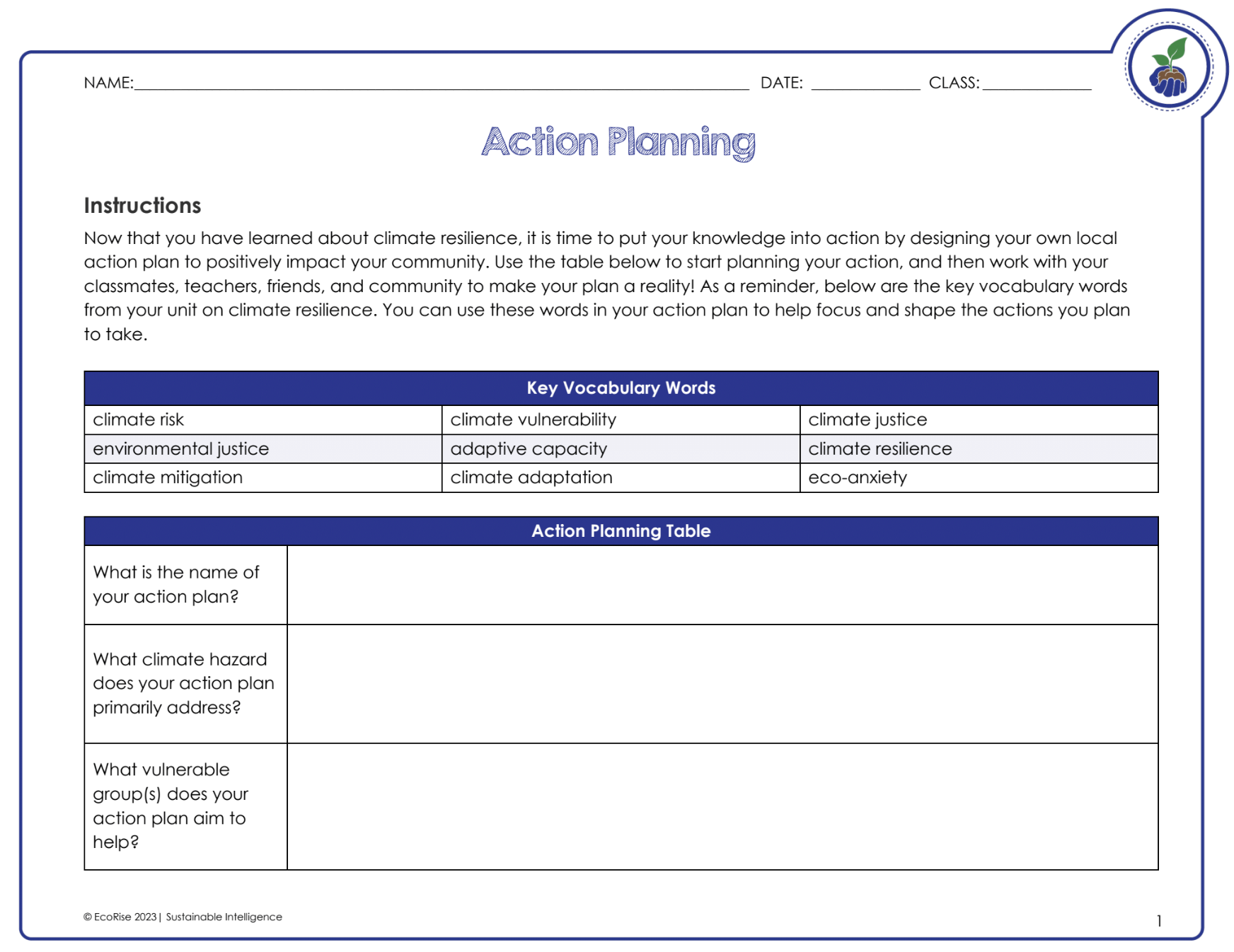Which SDG is this connected to?
The Issue:
The world is currently grappling with an unprecedented climate crisis, characterized by escalating temperatures, frequent extreme weather events, and a surge in climate-related challenges. As our population continues to urbanize, with more people moving to cities, it becomes increasingly vital not only to nurture the resilience within these communities, enabling them to respond effectively during climate disasters, but also to proactively integrate sustainability principles into future construction projects.
The Game Design Prompt:
Make a game that addresses the urgent issue of climate change by empowering players to design and manage sustainable buildings, schools, and cities. Challenge them to tackle climate resilience and climate action while considering environmental impact, public health, economic stability, and social equity. Inspire players to become champions of a sustainable future as they navigate the complexities of urban development and the global climate crisis.
Which SDG is this connected to?
Urbanization and Emissions: Factually, more than half of the world’s population now lives in cities, and urban areas contribute to over 70% of global greenhouse gas emissions, making sustainable cities a pivotal factor in reducing climate change impacts.
Climate-Related Disasters: Over the last 20 years, climate-related disasters have doubled, resulting in immense economic and human losses. Sustainable urban planning and climate resilience can mitigate these impacts.
Air Quality and Health: Poor air quality in urban areas is responsible for millions of premature deaths annually. Sustainable urban development can improve air quality and enhance public health.
Economic Benefits: Investments in sustainable cities can generate significant economic benefits. For example, every $1 invested in climate resilience can yield an average of $6 in savings from disaster costs.
Youth Activism: Young people worldwide, like those participating in the G4C Student Challenge, are increasingly demanding climate action, demonstrating the urgency and relevance of sustainable cities and climate resilience for future generations.
EcoRise mobilizes a new generation of leaders to design healthy, just, and thriving communities for all. We work at the intersection of sustainability education, climate resilience, and environmental justice by elevating youth voices and advancing student-led solutions to real-world challenges. We offer a range of curricula and programs for students, teachers, school districts, and partners designed to promote environmental literacy, sustainable schools, and equitable access to green career pathways.
The Introduction to Climate Resilience lessons create a foundation for elementary, middle, and high school students’ understanding of climate resilience and climate justice against the backdrop of climate change. Each lesson activates students’ curiosity, compassion, prior knowledge, and critical thinking to explore how people and groups in their own community and around the world are affected by climate change and how they are addressing climate change through just and resilient collective action.
Access the Lessons here: EcoRise Climate Resilience Lessons
G4C Student Challenge participants receive free access to the EcoRise Sustainable Intelligence Program which includes STEM-based K-12 standards aligned sustainability lessons focused on water, energy, waste, food, air, public spaces, and transportation & classroom grant funds for sustainability projects. Go to ecorise.org/enroll.
Environmental Justice is a socio-political movement aimed at supporting marginalized communities disproportionately affected by climate change.
“Environmental justice is the fair treatment and meaningful involvement of all people regardless of race, color, national origin, or income, with respect to the development, implementation, and enforcement of environmental laws, regulations, and policies.” – The United States Environmental Protection Agency
EcoRise Climate Resilience Lessons
Sample Worksheet:

EcoRise Student-Drive Grant Process:
EcoRise provides students with the opportunity to solve sustainability and climate challenges on their campus. Last year we awarded 90K in grant funds to student-driven projects like these. Students that complete the G4C Student Challenge are eligible to use their game creation to apply for grant funds to solve a challenge on their own school campus that relates to the topic of their game design.
To get started:
Here are the steps students need to take:
Students can work together on an application or submit applications individually. Once the grant has been submitted, it will be entered into our grant portal and reviewed by the EcoRise team. Students can also create a grant application video instead of submitting the worksheet. It must include the answers to the questions in the worksheet. You can share example videos with students from our YouTube channel: here.
Questions? Want to hop on a planning call or video chat? Email: [email protected].
© Copyright Games for Change 2025